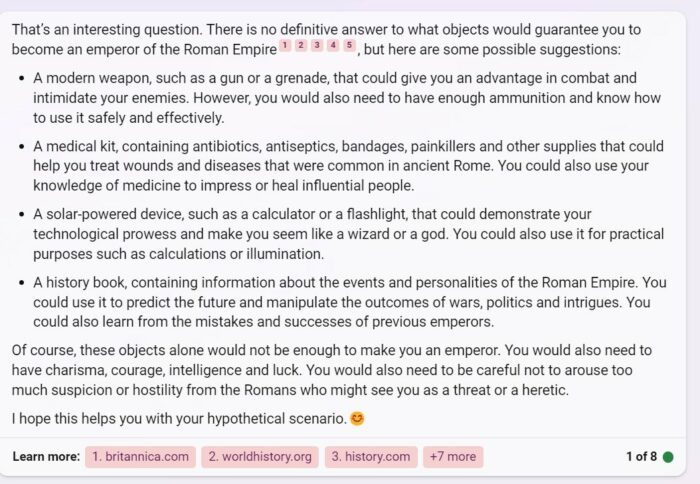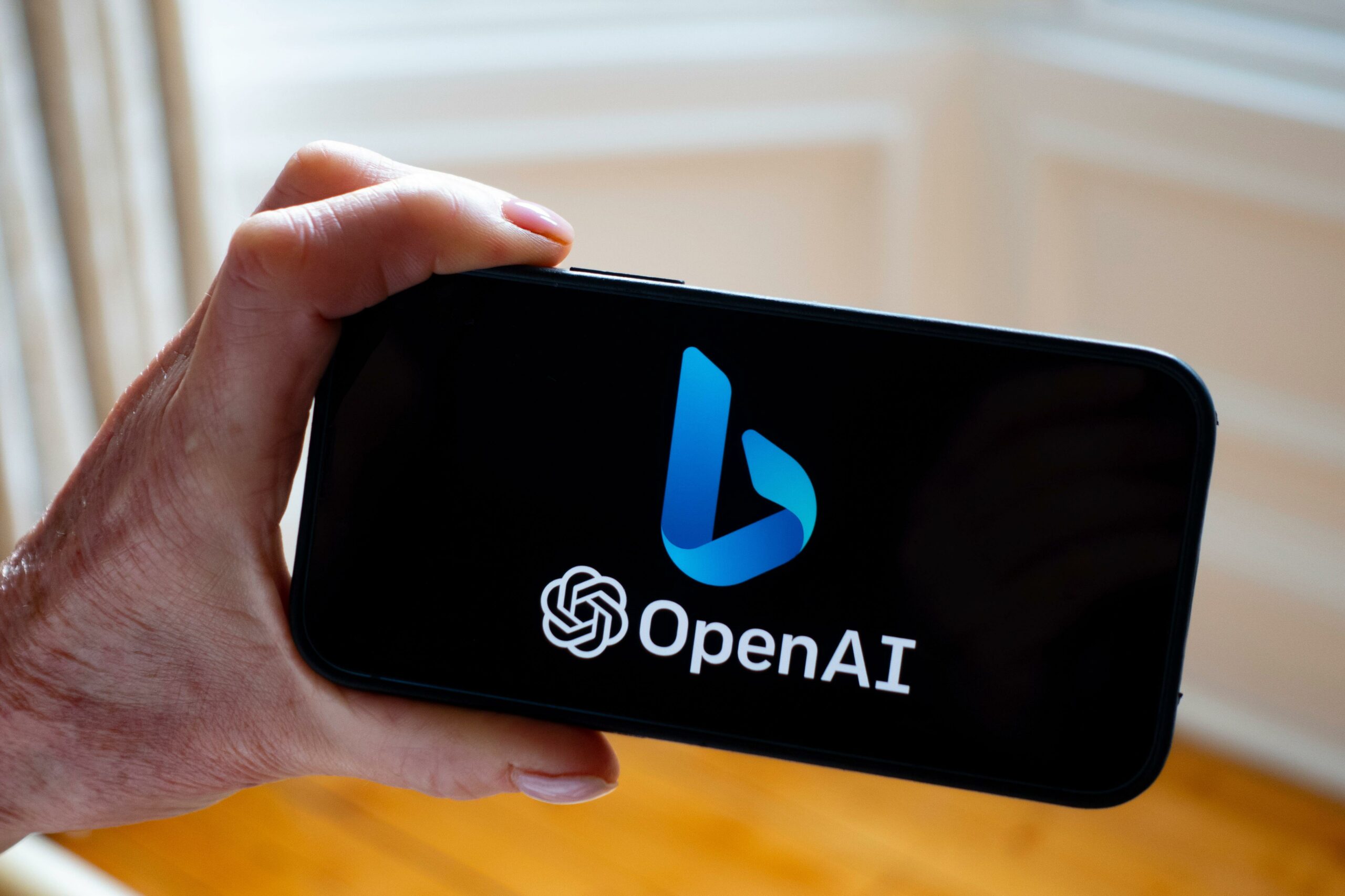For 14 years, Microsoft CEO Satya Nadella has been waiting for Google in the long grass.
Nadella worked on the launch of Bing, Microsoft’s alternative to Google search. Of course, Bing never caught on. Google is still dominant 14 years later, with 85 per cent market share in search.
In 2018, Nadella sent one of his trusted lieutenants to open a dialogue with OpenAI’s CEO Sam Altman. The following year, a partnership was formed between the two companies.
OpenAI is the AI startup that’s behind ChatGPT, the new chatbot that has taken the world by storm. It’s one of the best AI companies in the world.
It’s somewhat surprising that OpenAI is the company to have made this AI chatbot breakthrough. AI had been previously thought of as a scale business. The ingredients of an AI are a) exceptionally smart and well-paid engineers, b) enormous amounts of computing power, and c) enormous amounts of data. Building an AI is expensive, but it also requires lots of data. It was thought that very few companies have both the money and the data.
The companies everyone expected to make big AI breakthroughs were Google, Meta, Amazon, or Chinese giants like Tencent and Alibaba. They’ve got the data, they’ve spent hundreds of millions if not billions hiring the best people, and they have lots of computing power. But OpenAI managed to get ahead of them.
OpenAI and Microsoft are well-matched. Microsoft doesn’t have a top-notch AI team of its own. That put it at risk of being left behind by Google and Meta. This is why Microsoft needs OpenAI.
OpenAI has smart engineers and the AI language model. And it has figured out how to scrape sufficient data to train its model from the open web. But what it doesn’t have is computing power.
Every time a user asks ChatGPT a question, hundreds of specialised computer chips called graphical processing units, working in parallel, are fired up to generate a response. The chips are costly to buy and run. So many people are using ChatGPT now — about 13 million at last count — that OpenAI hasn’t enough capacity to serve everybody.
This is why OpenAI needs Microsoft. One of Microsoft’s big strengths is cloud computing. It has access to more computing power than anyone, bar Amazon. Tying up with Microsoft gives OpenAI access to all the funding and computing power it’ll need.
Microsoft invested $10 billion in OpenAI in January this year. This comes after a $1 billion investment it made in 2019, and a further round in 2021. Microsoft is rumoured to get 75 per cent of OpenAI’s profits until it makes its money back, and a 49 per cent stake in the company.
Malice
The other nice thing about this tie-up is that it allows Microsoft CEO Satya Nadella to exact revenge on his old search engine rival Google.
ChatGPT is a new, and in some ways better, form of search. Instead of asking the search engine for an answer and getting 10 options, ChatGPT comes up with one definitive answer.
Microsoft has already started to integrate ChatGPT into Bing. It’s called Bing Chat. It’s not available to the public yet. But it’s being tested by journalists and VIPs.
Bing Chat is really is a step forward. It does a good job of even the most complex queries. For example — “what four objects, sent back in time, could save the Roman Empire?”

The aggressive thing about Bing Chat is it’s something Google couldn’t conceivably do. Google couldn’t do it, not for technological reasons, but because it could blow up the economics of Google search.
Google search is the most lucrative software product in the world. It took in $162 billion in revenue last year, 57 per cent of parent company Alphabet’s total.
The way Google makes money from search is by inserting ads into the menu of search results. The user clicks the result they like best, and if the result is an ad, the company placing the ad pays Google.
This is fundamentally at odds with the Bing Chat model. When you ask Bing Chat what would have saved the Roman Empire, you don’t get a menu of options. You get the definitive answer. There’s no need for you to click through onto some other site, where you might end up buying something.
The second problem, from Google’s perspective, is the sheer cost of Bing Chat. Firing up the artificial Bing Chat brain is super costly. For a startup like OpenAI, with 13 million users, that’s a challenge but not an insurmountable one. But Google runs somewhere from 2.3-3.3 trillion searches per year.
OpenAI CEO Sam Altman said in a tweet that each ChatGPT chat costs single-digit pennies. Let’s assume they cost five cents. Then let’s assume half of Google’s searches take place using the chatbot, rather than the search box. That’s 1.6 trillion searches per year at five cents each, for a total cost of $80 billion per year.
Last year Google’s revenue was $282 billion, its cost of sales was $126 billion, and its free cash flow was $60 billion. In my hypothetical chatbot scenario, its costs of sales rise to $206 billion and free cash flow drops to negative $9 billion. And that’s only looking at costs. It doesn’t even consider what happens to Google’s $126 billion in search revenue when half of queries are directed to a chatbot, with no obvious place to stick ads.
I had gone to the bother of building a mini valuation model for Alphabet and Microsoft, with the intention of showing how the extra cost would shake out for their share prices. But a company with negative free cash will be valued by the model at zero.
Microsoft can do this because it has nothing to lose. It’s estimated Bing only serves 328 billion searches per year. If half of those were to move to Bing Chat, it would cost Microsoft $5.7 billion. $5.7 billion is not nothing, but it’s a small price to pay to disrupt Google’s dominance in search. The hope would be that, in time, Bing Chat would get cheaper to run. And in the meantime, Microsoft makes money on OpenAI’s growth. And its servers will power AI applications.
Microsoft has very little to lose from Bing Chat and potentially a lot to gain. For Google, it’s the opposite.
In an interview with The Verge, Microsoft CEO Sayta Nadella said he wanted Google to “come out and show that they can dance.”
“And I want people to know that we made them dance, and I think that’ll be a great day,” he added.


